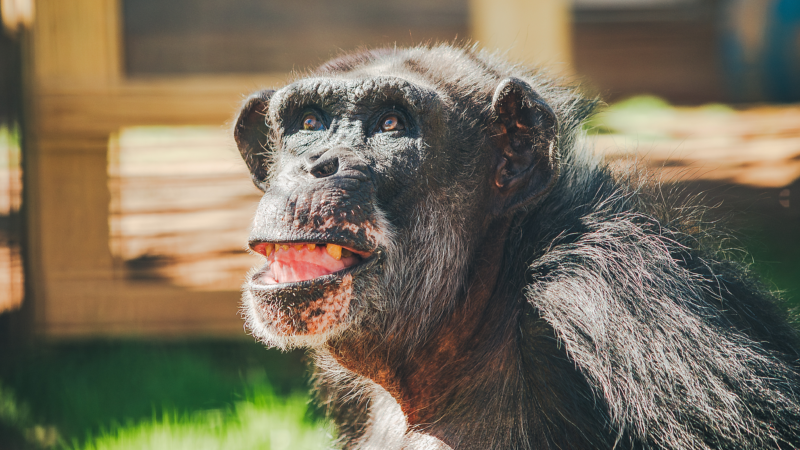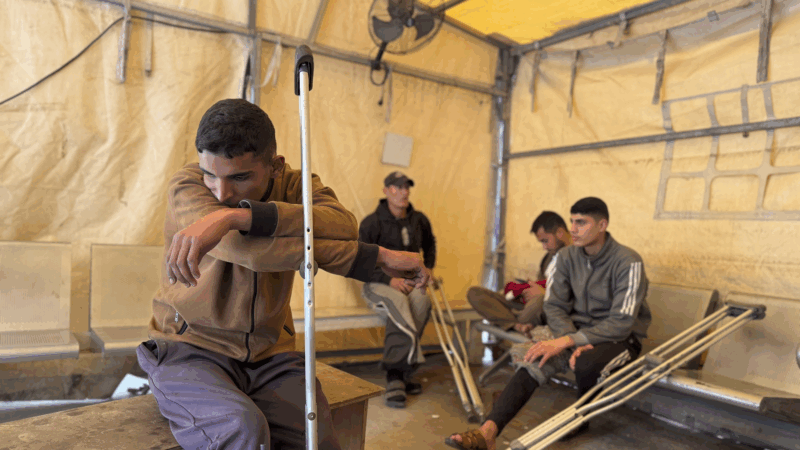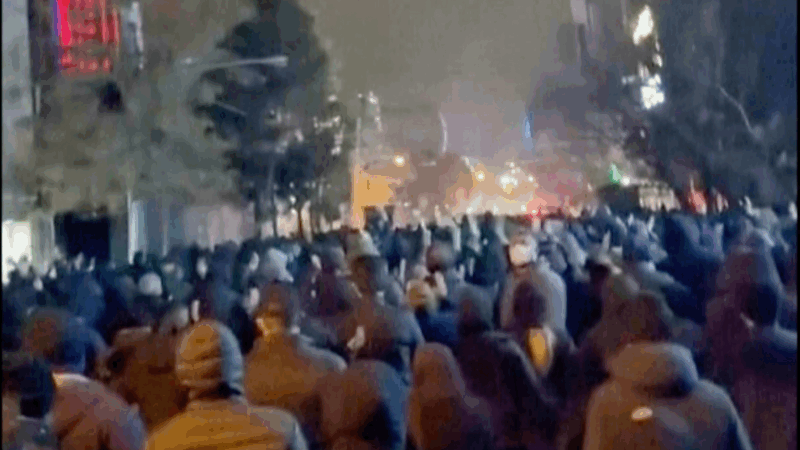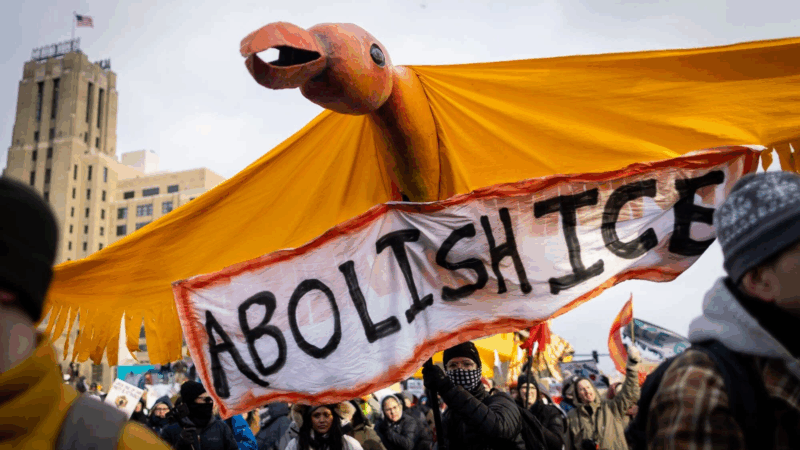Aging former research chimps move to Chimp Haven
Al and Kamaka, two old friends who are both in their 50s, are experiencing a whole new world.
Part of what’s novel: females.
“Right off the bat, they were just enamored with the ladies in the group,” says Rana Smith, the president and CEO of Chimp Haven in Louisiana, the federal sanctuary for former research chimps.
Chimp Haven recently welcomed these two male chimps and integrated them into an existing social group that includes a male called Tabu, along with four females. Tabu “doesn’t mind sharing his lady friends,” says Smith.
Both Al and Kamaka were born in the wild, but as far as she knows, in captivity, these two chimps “never experienced living with females before.”
Al and Kamaka used to be housed together as a pair at the Alamogordo Primate Facility on an Air Force base in New Mexico. They were part of a group of former research chimpanzees that remained there even after the National Institutes of Health moved many other retired chimps to Chimp Haven.
But over the last few months, 21 chimps have been moved from that facility. This took place over four different transports.
“There are no more chimps at Alamogordo,” Smith says.

Many of the Alamogordo chimps were in their 50s and 60s, with the same kinds of medical conditions seen in aging humans.
Previously, the National Institutes of Health, which is responsible for the chimps, had said that the animals left in New Mexico were too frail and unhealthy to risk making the trip.
That decision was challenged by some animal welfare groups, which said these animals deserved a shot at enjoying life in a more natural setting, among larger social groups.
Last November, the NIH reversed course, saying all of the Alamogordo chimps could go to Chimp Haven. That’s because officials learned that the chimps’ longtime caregivers in New Mexico were going to be retiring and the staff would be difficult to replace.
“It was a big surprise to receive word from NIH that they decided to transfer the remaining chimps,” Smith says.
One chimp, Patricia, wasn’t able to make it to Chimp Haven because she died during the transport process. Smith says it seemed as though the anesthesia was likely to blame.
“The rest of the chimpanzees were actually moved into their transport crates without anesthesia, and it was smooth sailing,” Smith says. “We didn’t have any additional issues. And all of those chimps are really doing well, settling in at Chimp Haven and just starting to thrive.”
Of the 21 new arrivals, five have been integrated into existing chimp groups at the sanctuary. The others are staying in a quarantine facility, awaiting the construction of new housing and outdoor yards.
The NIH stopped all invasive biomedical research on chimps about a decade ago.
Since then, almost all of the approximately 300 chimps owned or supported by the NIH have been gradually transferred to Chimp Haven.
A small number of NIH chimps remain at two primate facilities in Texas. A certain number are there because they’re bonded to a frail chimp. If they remain healthy, they should be eligible to go to the sanctuary once their friend dies, Smith says.
“Many of these chimps, including the ones that we just welcomed from Alamogordo, have spent decades in research,” Smith says. “We’re just so thrilled to be able to provide their happy ending.”
Venezuela’s exiles in Chile caught between hope and uncertainty
Initial joy among Venezuela's diaspora in Chile has given way to caution, as questions grow over what Maduro's capture means for the country — and for those who fled it.
Sunday Puzzle: Pet theory
NPR's Sacha Pfeiffer plays the puzzle with KAMW listener Daniel Abramson of Albuquerque, N.M, and Weekend Edition Puzzlemaster Will Shortz.
Inside a Gaza medical clinic at risk of shutting down after an Israeli ban
A recent Israeli decision to bar Doctors Without Borders and other aid groups means international staff and aid can no longer enter Gaza or the West Bank. Local staff must rely on dwindling supplies and no international expertise.
Iran warns US troops and Israel will be targets if America strikes over protests as death toll rises
Iran's parliament speaker warned the U.S. military and Israel would be "legitimate targets" if America strikes the Islamic Republic, as threatened by President Donald Trump.
Bob Weir, guitarist and founding member of the Grateful Dead, has died at 78
For three decades with the Grateful Dead and three more after the group ended following the 1995 death of his bandmate Jerry Garcia, Weir helped build and sustain the band's legacy across generations.
Nationwide anti-ICE protests call for accountability after Renee Good’s death
Activist organizations are planning at least 1,000 protests and vigils this weekend. Officials in major cities cast Saturday's demonstrations as largely peaceful.








